#polish-lithuanian commonwealth
Text
Books about Napoleonic era (and Polish history) - 3
Good day, dear all, and let me share with you some books I've read recently.
And because today is the birthday of Tadeusz Kościuszko I'll start with a biography of him The Peasant Prince, by the American historian Alex Storozynski:

2. One more position about the Polish history, in English, I'd like to recommend you is Richard Butterwick's The Polish-Lithuanian Commonwealth, 1733–1795: Light and Flame, dedicated to the reigns of Polish-Lithuanian two last kings, Augustus III Wettin and Stanisław August Poniatowski:
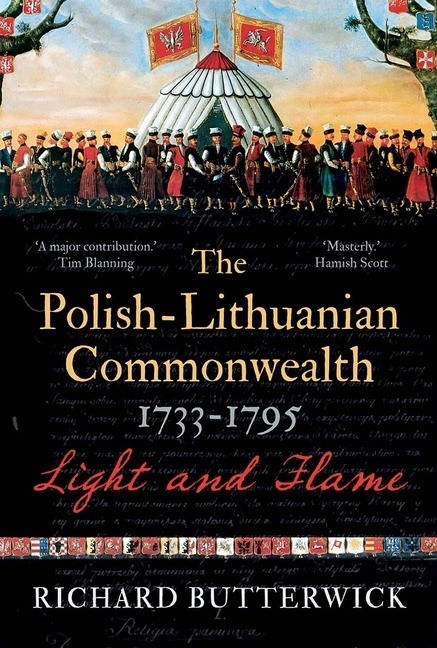
From the topic of Polish history let's switch to the French one.
3. One more addition to my collection of Talleyrand's biographies was this one, written by Robin Harris:

4-5. Then, there were two books about Napoleon's private life, by Octave Aubry and Sigrid-Maria Größing:
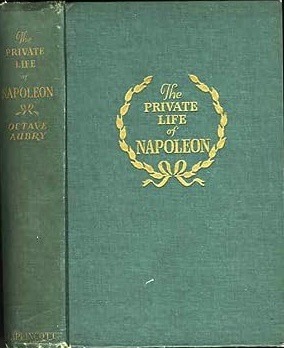

6-7. A study on the topic of French revolutionary and imperial generals, by Georges Six, and George Nafziger's Imperial Bayonets. (These were books with lots of military details, so I can't say I've enjoyed them thoroughly, rather not belonging to their target audience))
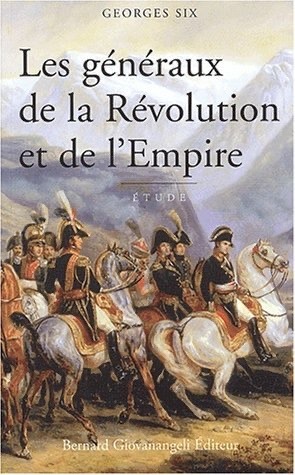

8. And this is a book I really liked, The anatomy of Glory by Henry Lachouque! And though its subtitle (Napoleon and his Guards) kinda states the book will be focused on the Imperial Guards, in fact its topics turned out much more wider, including information on Napoleon himself, France and even some details of the usual life of that times:

9. The book majority of you have already read, The Iron Marshal, a biography of Louis Nicolas Davout by John Gallaher:

10-11. And the last but not the least - two books on Murat. The first is a book by the French historian Jean Tulard and the second is an impressive work of Sarah Hammel @joachimnapoleon.


Thanks a lot, Sarah, for letting as see Joachim Murat through his letters, from his own point of view!
#books#napoleonic era#history books#kościuszko#tadeusz kościuszko#Alex Storozynski#Polish-Lithuanian Commonwealth#Richard Butterwick#Talleyrand#charles maurice de talleyrand périgord#Robin Harris#napoleon#napoleon bonaparte#Octave Aubry#Sigrid-Maria Größing#Georges Six#George Nafziger#Henry Lachouque#Louis Nicolas Davout#John Gallaher#joachim murat#jean tulard#Sarah Hammel
38 notes
·
View notes
Text
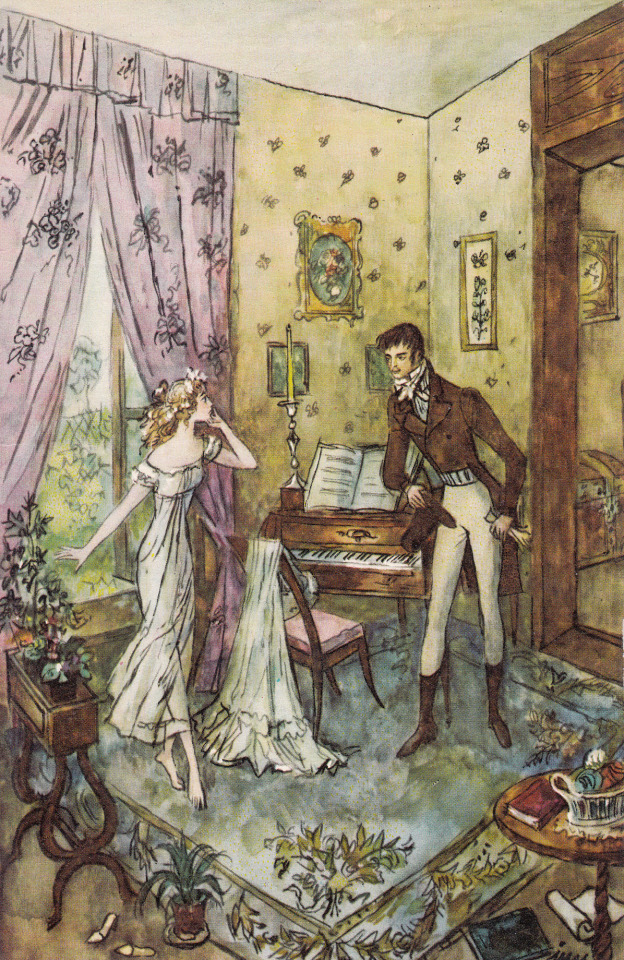
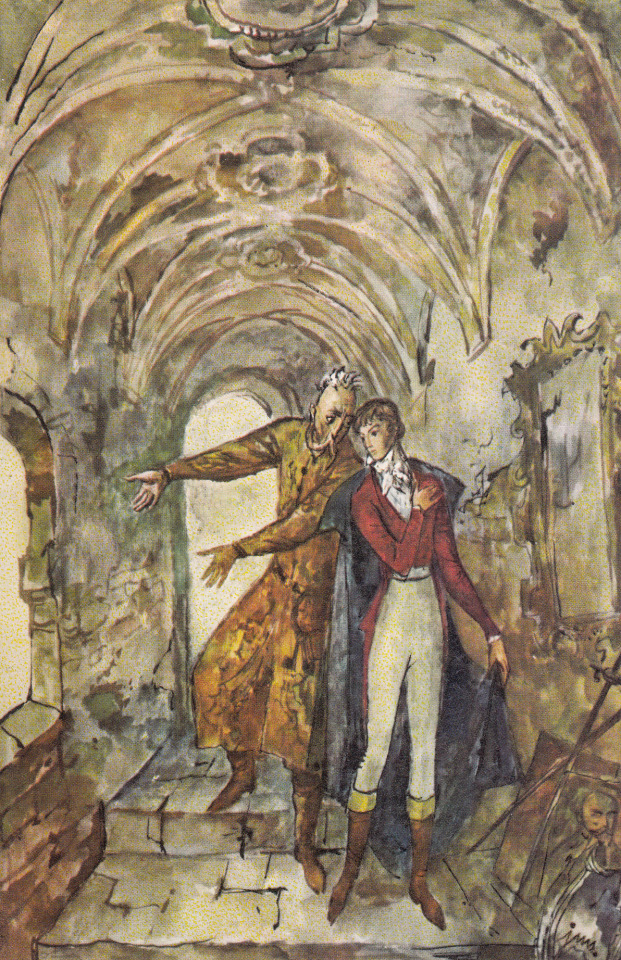
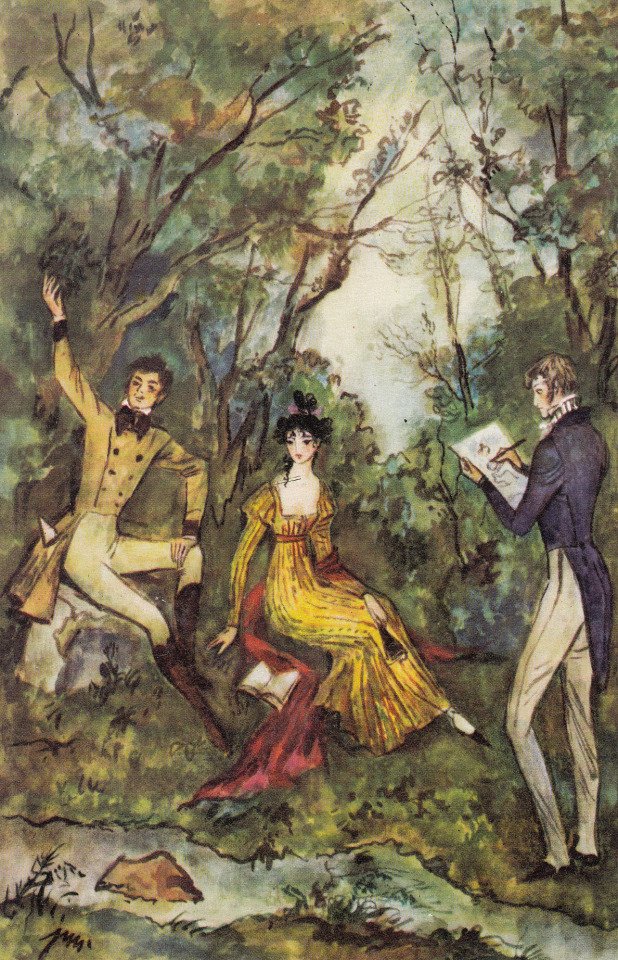
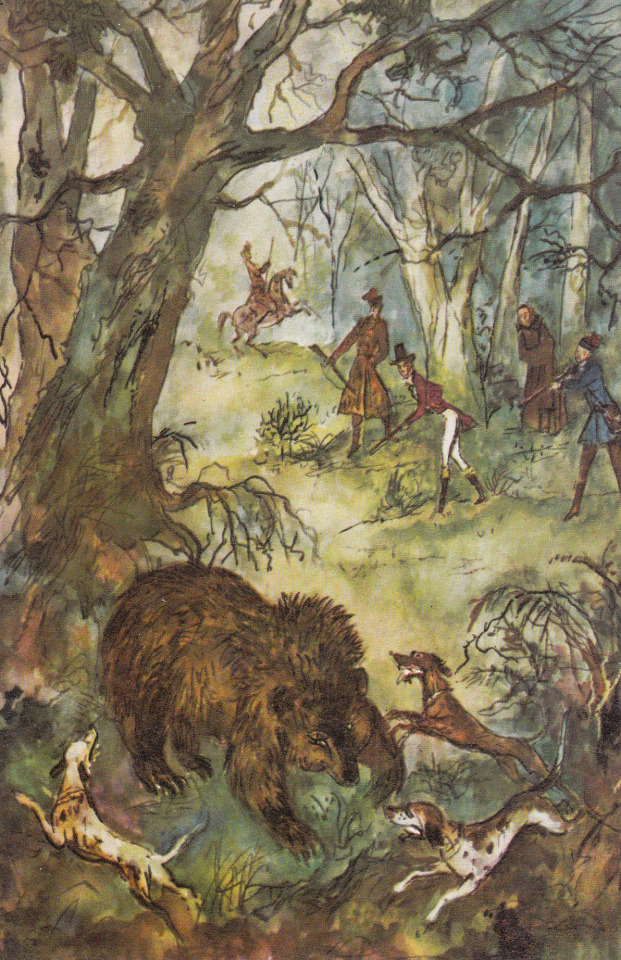
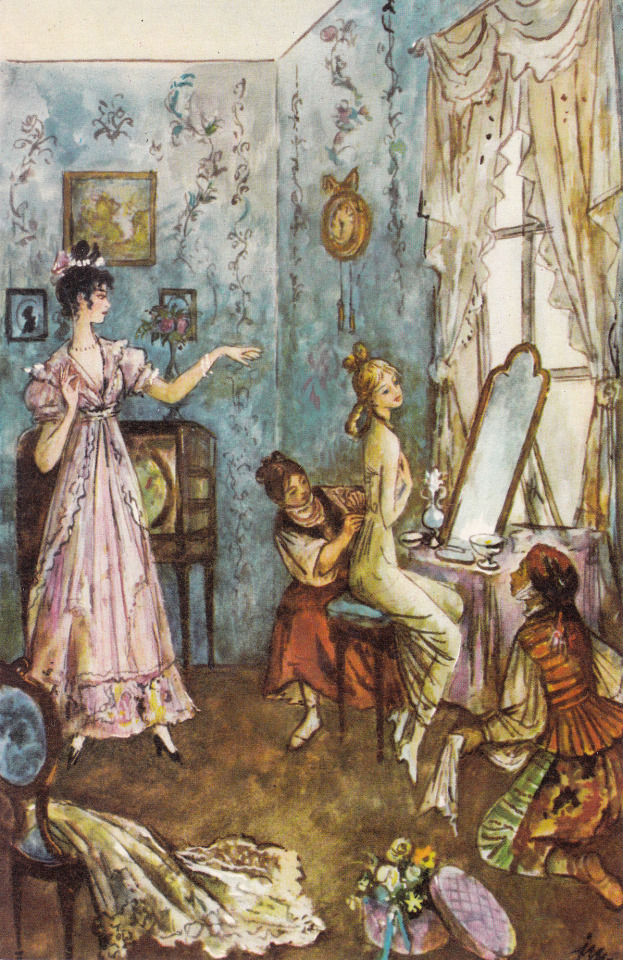

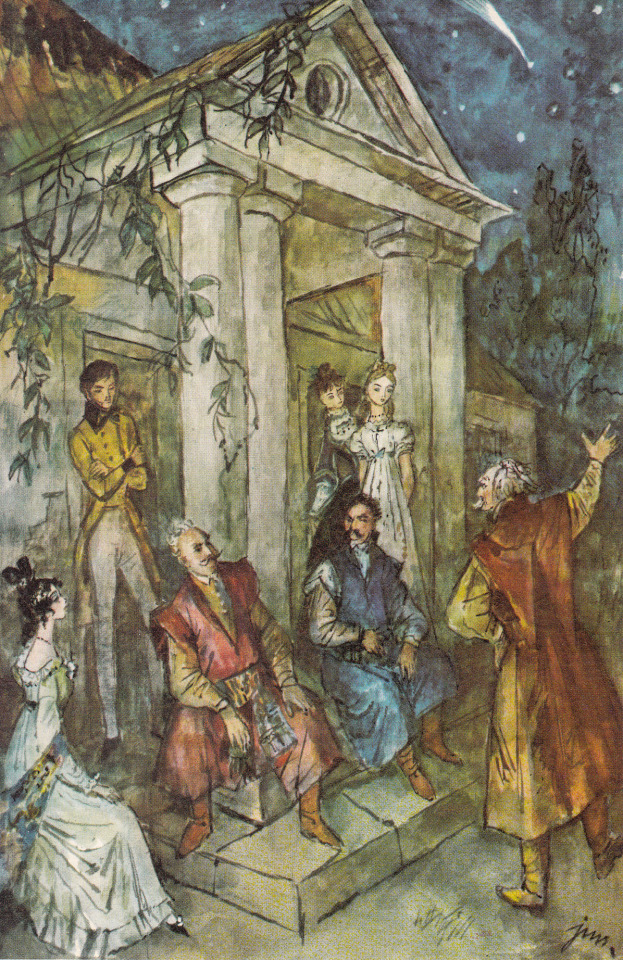
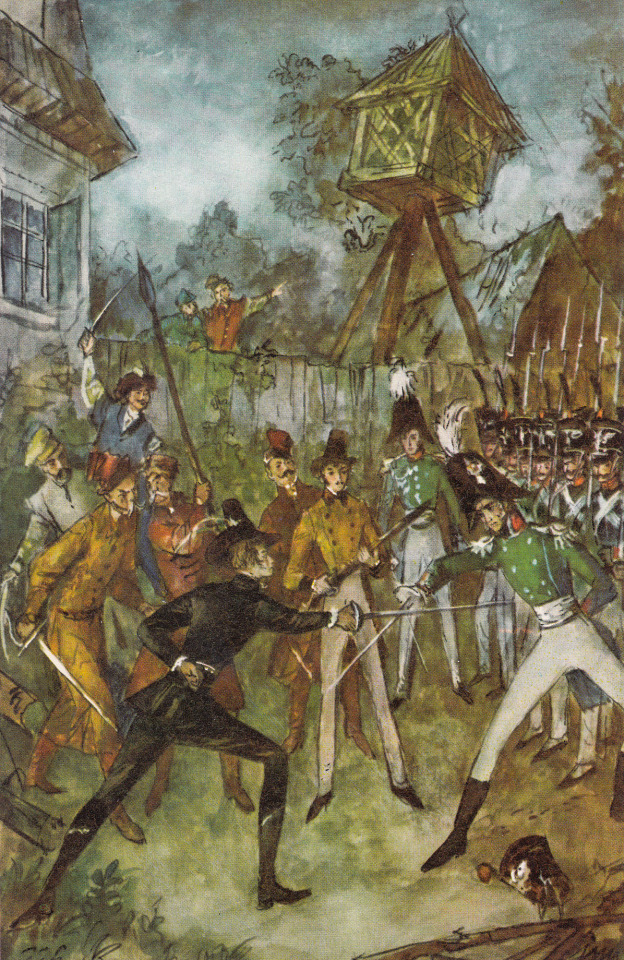
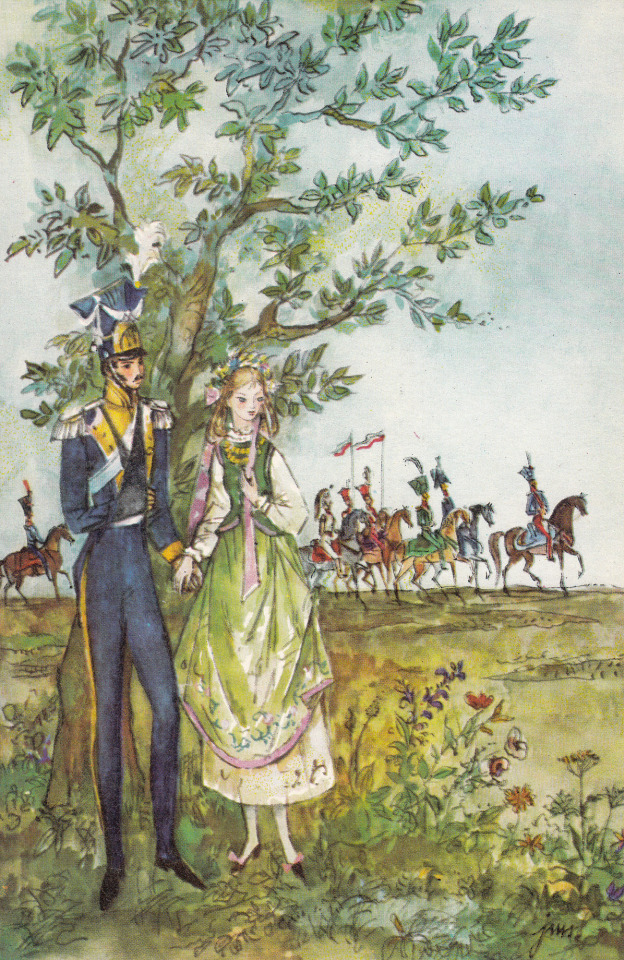
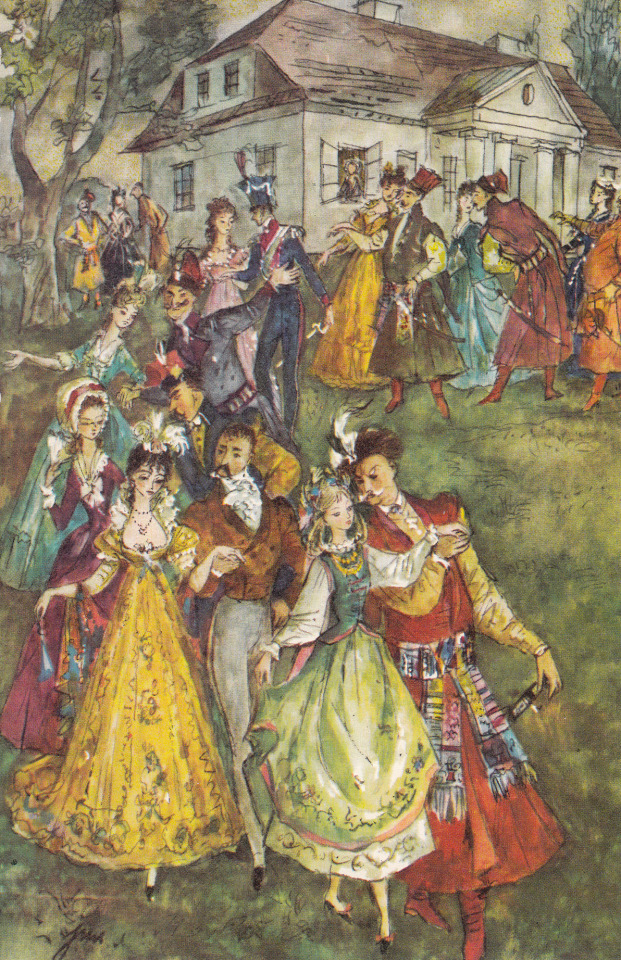
"Pan Thaddeus" illustrated by Jan Marcin Szancer (Polish, 1902-1973)
Pan Thaddeus (1834), by Polish writer, Adam Mickiewicz, is recognized as the national epic of Poland and it is considered by many to be the last great epic poem in European literature. The poem narrates the tale of two feuding noble families and the love story between Tadeusz and Zosia. It takes place in a fictional idyllic village, in 1811 and 1812.
"No European nation of our day has such an epic as Pan Thaddeus. In it Don Quixote has been fused with the Iliad. ... Pan Thaddeus is a true epic. No more can be said or need be said". (Zygmunt Krasiński)
"No play of Shakespeare, no long poem of Milton or Wordsworth or Tennyson, is so well known or so well beloved by the English people as is Pan Thaddeus by the Poles. To find a work equally well known one might turn to Defoe's prosaic tale of adventure, Robinson Crusoe; to find a work so beloved would be hardly possible". (George Rapall Noyes)
#pan tadeusz#adam mickiewicz#polish literature#jan marcin szancer#polish illustration#polish art#poland#polska#szlachta#nobility#poland lithuania#Polish lithuanian commonwealth#polish-lithuanian commonwealth#rzeczpospolita#kontusz#19th century#polish romanticism#polishcore#idyllic#dwór#romanticism#*
430 notes
·
View notes
Text

Armoured companions
by Anatoly Telenik.
12 notes
·
View notes
Text
On This Day In History
November 25th, 1795: Stanisław August Poniatowski, the last King of Poland before the partition of Poland among Prussia, Russia, and the Habsburgs, is forced to abdicate the throne.
#history#world history#poland#polish history#russia#prussia#habsburgs#polish-lithuanian commonwealth
63 notes
·
View notes
Text
Brief History of Poland (1772 - 1947).
In 1912 when my great-grandfather was born, Poland didn't exist on the map. We were still under occupation of the same countries that partitioned Polish-Lithuanian Commonwealth during three separate partitions (1st - 1772, 2nd - 1792-93, 3rd - 1795).
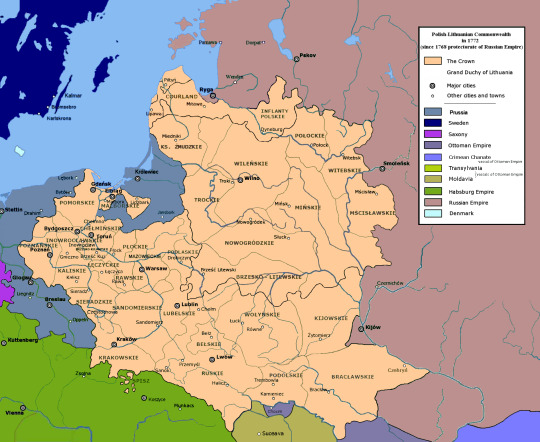
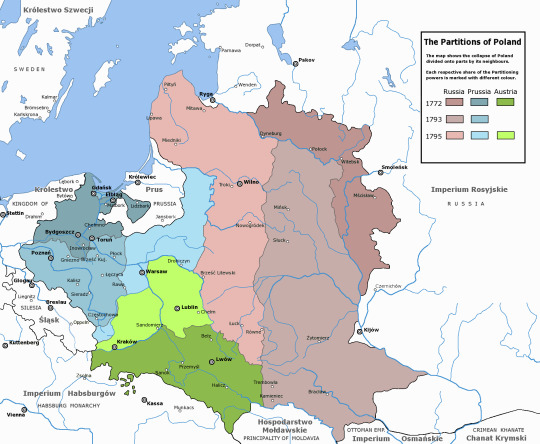
In 1815 the Congress of Vienna created Congress Poland as a semi-autonomous Polish state. It was established when the French ceded a part of Polish territory to the Russian Empire following France's defeat in the Napoleonic Wars (which Polish people took part in, in hope to regain their lost country, which is also when Polish platoon sent to Haiti to suppress the revolt turned against the French and helped the revolting Haitians). Replaced in 1916-1917 by Kingdom of Poland, established by German Empire and Austria-Hungary.
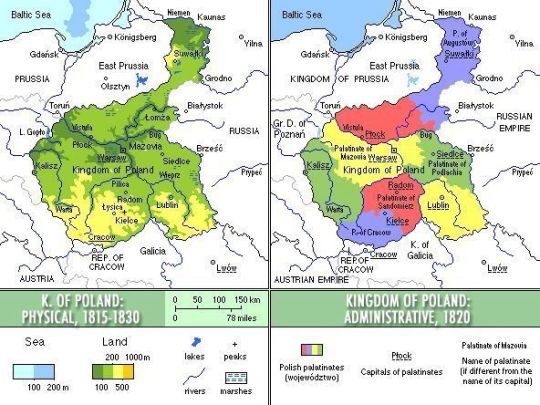
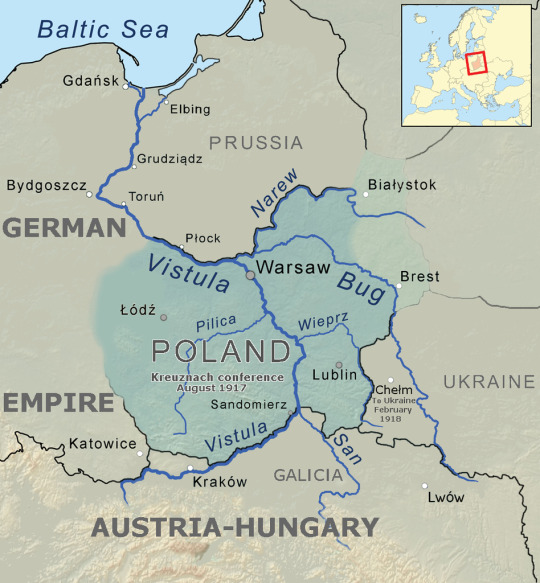
The country appeared on the map in truth again in 1918, when it finally gained its independence after 123 years of occupations.
The borders of it changed when Poland acquired some lands during the Polish-Bolshevik War that overlapped with some territories from 1772 that the Commonwealth held before the partitions happened.
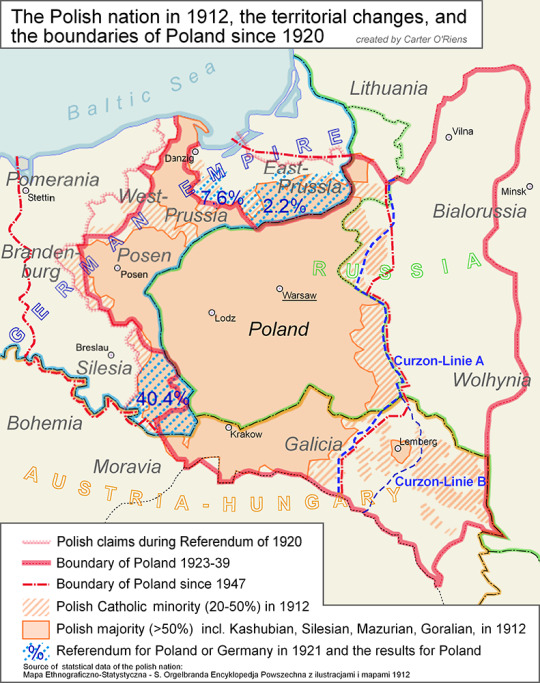
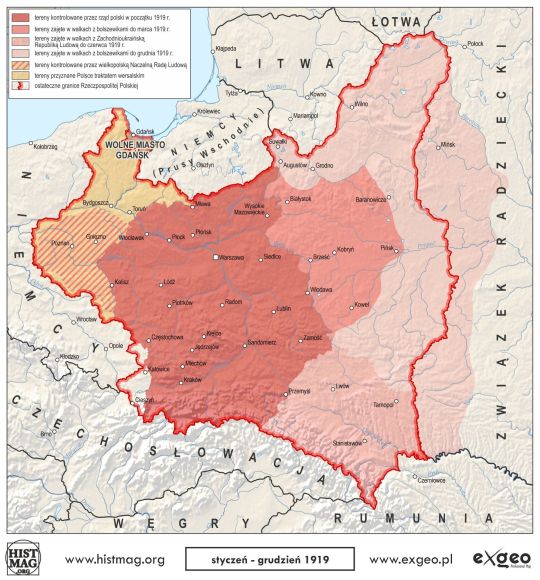
In the meantime, there was also 1919-1920 Lithuanian-Polish War, which was mostly about "to whom Vilnius belongs". Polish people felt really attached to it as polish culture was revived and cultivated in that very city when the country didn't exist on the map for a hundred of years, so it had great historical and sentimental value to Poles.
Nowadays, Vilnius is part of Lithuania, but polish kids know about its significance and even recite the poem "Lithuania, my country" at school, which signifies the historical and emotional ties to Lithuania.
Oh, Lithuania, mu country, Thou ar't like good health
I never knew till now how precious, till I lost Thee.
Now I see Thy beauty whole, because I yearn for Thee
Oh Holy Maid, who Czestochowa's shrine does't guard
And in the Pointed Gateway shine, and watches't Nowogrodek's pinnacle
As Thou dids't heal me by a miracle (for when my wheeping Mother sought Thy
power I raised my dying eyes, and in that hour my strength returned, and to Thy
shrine I trod, for life restored to offer thanks to God), so, by a miracle
Thou'll bring us home.
Meanwhile bear-off my yearning soul to roam those little wooded hills,
those fields beside the azure Niemen, spreading green and white,
where amber trefoil, buck-wheat white as snow, and clover with her maiden
brushes grow
And all is girdled with a grassy band of green,
Whereon the silent pear-trees stand.
Polish version:
Litwo, Ojczyzno moja! ty jesteś jak zdrowie;
Ile cię trzeba cenić, ten tylko się dowie,
Kto cię stracił. Dziś piękność twą w całej ozdobie
Widzę i opisuję, bo tęsknię po tobie.
Panno święta, co Jasnej bronisz Częstochowy
I w Ostrej świecisz Bramie! Ty, co gród zamkowy
Nowogródzki ochraniasz z jego wiernym ludem!
Jak mnie dziecko do zdrowia powróciłaś cudem
(— Gdy od płaczącej matki, pod Twoją opiekę
Ofiarowany martwą podniosłem powiekę;
I zaraz mogłem pieszo, do Twych świątyń progu
Iść za wrócone życie podziękować Bogu —)
Tak nas powrócisz cudem na Ojczyzny łono!…
Tymczasem, przenoś moją duszę utęsknioną
Do tych pagórków leśnych, do tych łąk zielonych,
Szeroko nad błękitnym Niemnem rozciągnionych;
Do tych pól malowanych zbożem rozmaitem,
Wyzłacanych pszenicą, posrebrzanych żytem;
Gdzie bursztynowy świerzop, gryka jak śnieg biała,
Gdzie panieńskim rumieńcem dzięcielina pała,
A wszystko przepasane jakby wstęgą, miedzą
Zieloną, na niej zrzadka ciche grusze siedzą.
And then WWII happened. Poland was partitioned once again, but this time by the Third Reich and Soviet Union, according to the secret clauses included in the Ribbentrop-Molotov Pact from 1939.

The new Poland borders were decided after the WWII ended by the three powers that fought Hitler: USA, USSR and UK. The east border followed The Curzon Line, that resulted in the loss of the Eastern Borderlands to the Soviet Union, while the Oder–Neisse line became its western border, resulting in gaining the territories from Germany.
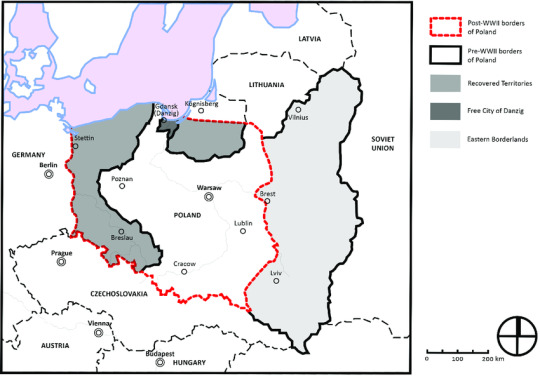
And this is the country of Poland that you can see today. Which also means that in its current form, Poland existed for exactly 76 years.
#poland#polish history#brief polish history#polish-lithuanian commonwealth#world war 1#world war 2#lithuanian-polish war#polish-bolshevik war
2 notes
·
View notes
Text
The history of the Polish-Lithuanian Commonwealth presents two great paradoxes:
First, there is the concept that freedom is innately a good thing and despotism innately evil. The particular freedoms of the Polish nobility were taken to such a level that it rendered the Polish state impossible to function and thereby allowed for the Partitions whereby Prussia, Austria, and Russia quite literally erased it from the map. This, ultimately, was the reward of Poland for being an uncannily early parliamentary state with religious tolerance.
Second is that one of early modern Europe's most powerful states, which had central roles in particular geopolitical dramas up to and including the 1683 Siege of Vienna and the abortive effort to put a Tsar on the Muscovite throne for which the leaders and people of Russia have never forgiven them was as neatly forgotten and memory-holed as it was to a point that this book. To me at least a part of this is owed to the simple reality that the state decayed so far that it was partitioned.....right at the same timeframe as the outbreak of the French Revolution.
There are entirely good and cogent questions as to which event, the Partitions of Poland or the overthrow of Louis XVI by the First Republic, had the greater and longer-lasting impact on Europe in the 19th Century and into the 20th Centuries. There is also the reality that the Lithuanian part of the Commonwealth had most of the land, was treated as a cash cow by the Poles and thereby stored up a great deal of animosity enduring into the present, and that it was Lithuania which enabled Poland to stay great, not the other way around.
The Lithuanian Jagiellons that founded the Commonwealth were the last rulers of a polytheistic/pagan state in Europe, who converted just over a century before European Christianity would collide with the Americas. In turn the system that they led illustrates how dangerous the old nobility caste could be, and thus set up a century of division for Poles and the common interests of the three autocracies that divided the former state, as well as accelerating the bloody histories and animosities of Poland and Russia.
8/10.
2 notes
·
View notes
Text
Ukraine
Ukraine is a country located in Eastern Europe. It has a rich history and a diverse culture, with influences from Russia, Poland, Turkey, and other neighboring countries. Ukraine gained independence from the Soviet Union in 1991, and since then, it has undergone significant economic, political, and social changes. In this essay, I will provide an in-depth analysis of Ukraine, its history,…
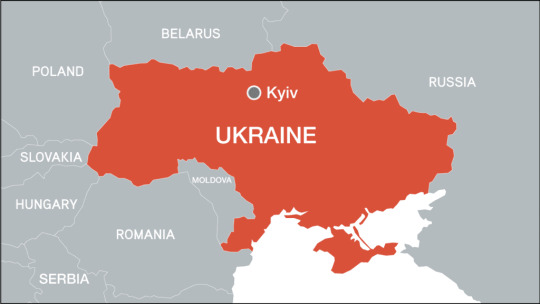
View On WordPress
#borscht#holubtsi (stuffed cabbage rolls)#Kievan#Mongols#Polish-Lithuanian Commonwealth#Russia#Russian Empire#salo#Soviet Union#varenyky (dumplings)#War
0 notes
Photo
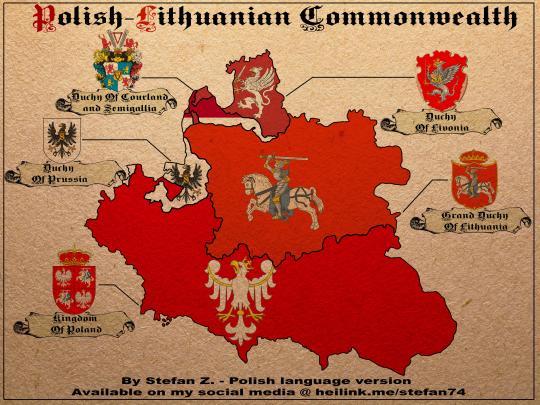
Polish-Lithuanian Commonwealth Poster
150 notes
·
View notes
Text

#aaahhhh okay didn't know that#polish lithuanian commonwealth#technically Smalensk is Belaruthian but okay#Lithuania#Poland
11 notes
·
View notes
Text
I didn't know there would be a Vilnius livestream, but someone I don't know messaged me on ig with the link when it started because they remembered that I streamed a few days ago and wanted to make sure I got tonight's stream, omg 😭😭😭 I love this fandom
#joker out#vilnius#jo polish tour#ok technically jo polish-lithuanian-czech tour#all hail the polish-lithuanian commonwealth
14 notes
·
View notes
Note
You're a fantastic Town Crier. But I raise you this. You're the royal crier when important royal events happen. Lets be real here you're the commonwealths Royal Crier.
Ooh even better! I can spend my days going dzyń! dzyń! dzyń!
Si Deus et Anime Nobiscum Sunt, Quis Contra Nos?
#asks and replies#anon#that's the motto of the polish lithuanian commonwealth but in latin#let me know if the latin is wrong#it sounds right as a spanish speaker but it's also you know latin
9 notes
·
View notes
Text
need to bring back marriage of state. like trudeau and biden marry so canada and the US can merge. hell it doesnt even have to be that big. senator for virginia and west virginia can unite the virginias through matrimony
13 notes
·
View notes
Photo
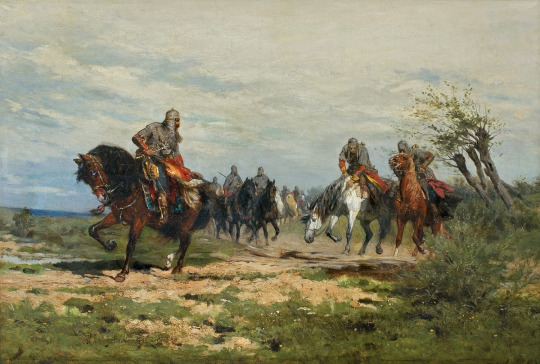
Pancerni on the road - Władysław Szerner.
36 notes
·
View notes
Text
On This Day In History
October 14th, 1773: The first ministry of education in history, the Commission of National Education, is formed in the Polish-Lithuanian Commonwealth.
#history#world history#education#poland#polish history#lithuania#lithuanian history#polish-lithuanian commonwealth
86 notes
·
View notes
Text
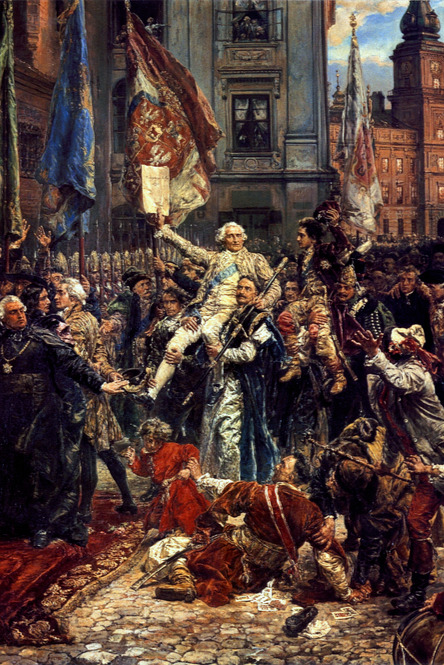

On this day in 1791 the Constitution of 3 May 1791 was adopted by the Great Sejm ("Four-Year Sejm", meeting in 1788–1792) for the Polish–Lithuanian Commonwealth, a dual monarchy comprising the Crown of the Kingdom of Poland and the Grand Duchy of Lithuania.
It was the second constitution in history, after that of the United States.
Happy anniversary for all my celebrating Polish folks! 🇵🇱🎉
#posted by me#eastern europe#poland#lithuania#the polish-lithuanian commonwealth#history#polishblr#the constitution of 3 may
10 notes
·
View notes
Text

Ilekroć z Prus powracam, chcąc zmyć się z niemczyzny,
Wpadam do Soplicowa jak w centrum polszczyzny;
Tam się człowiek napije, nadysze ojczyzny!
***
- Adam Mickiewicz, "Pan Tadeusz"
#ojczyzna#pan tadeusz#adam mickiewicz#mickiewicz#polska#polskie cytaty#cytaty po polsku#poland#polish#polish literature#polish langblr#romantyzm#polish romanticism#prusy#prussia#rzeczpospolita#Polish lithuanian commonwealth#dwór#dworek#polishcore
35 notes
·
View notes